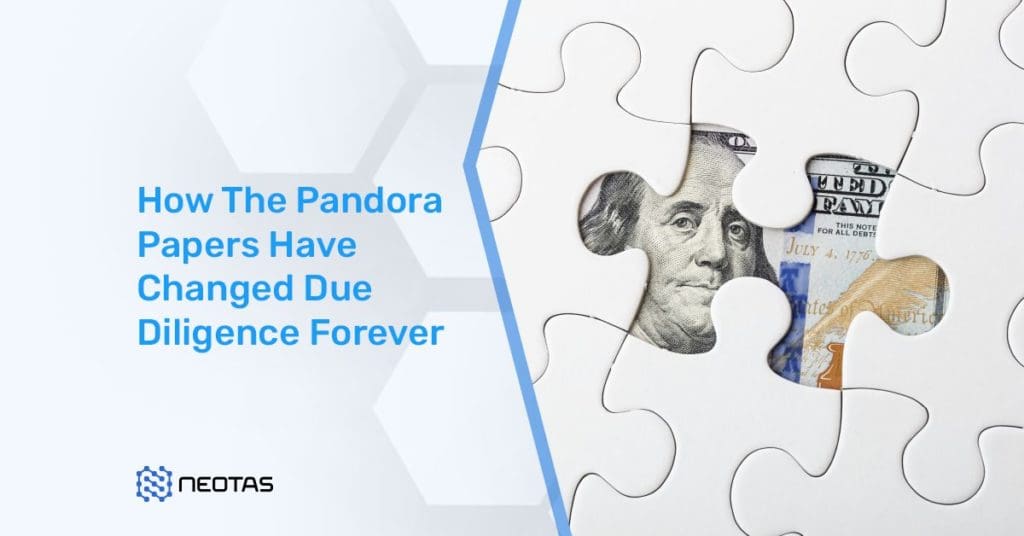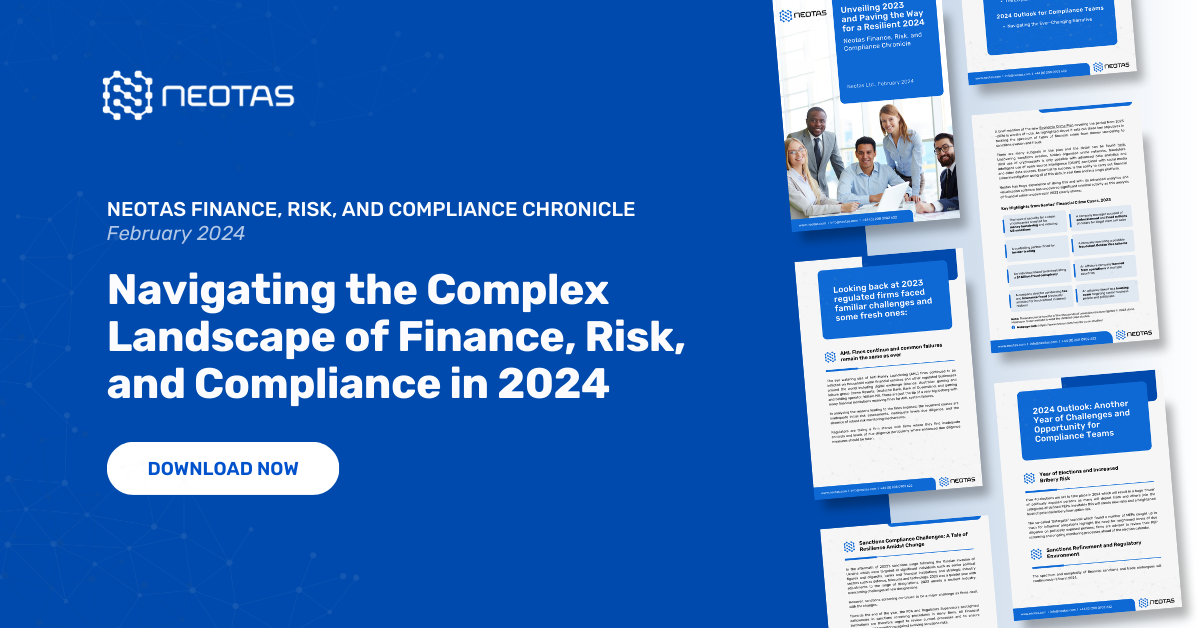How The Pandora Papers Changed Due Diligence Forever :
The Pandora Papers leak – the latest in a series of off-shore data leaks in the past seven years – has exposed nearly 12 million financial documents to the public eye.
As with previous leaks, this public scandal damages the reputations of those involved and raises larger questions about trust, risk and the world of due diligence.
Business that was once hidden behind complex corporate structures has now been brought to light. With it comes millions, possibly billions of intriguing data points for financial investigators, lawyers and police officers to pore over.
Panama, Paradise, Pandora
The Pandora Papers leak is the latest significant data drop from the International Consortium of Investigative Journalists. Previous leaks including the Panama and Paradise Papers, as well as smaller leaks, shed light on the shady dealings taking place in “complex off-shore structures”.
One of the many side-effects of the previous off-shore data-leaks – especially the highly publicised Panama Papers in 2016 – was that it revealed fresh evidence of hidden assets.
In 2015, two ex-wives won a US Supreme Court battle to challenge their settlements after the court found their ex-husbands had misled the courts and failed to disclose property that had been revealed in the leak. This is just one example of how undisclosed assets can impact the legal course of action.
Another, possibly more significant side effect was that they also revealed how many “complex” business structures were, after thorough investigation, discovered to be better described as money-laundering schemes.
Nothing to see here – so far
So far, there have been no allegations of financial wrong-doing in the Pandora Papers. This was also the case following the publication of the Panama Papers.
Fast forward four years however, and the Cologne public prosecutor’s office issued international arrest warrants in 2020 for the partners of law firm Mossack and Fonseca.
In 2016, the firm had responded to journalists saying they followed “both the letter and spirit of the law”. And just as then, so it is now.
No allegations of criminality have been made to date and the off-shore services providers implicated in the Pandora Papers have, so far, claimed to have operated fully within the law, as was the case in 2016.
Alcogal, Asiaciti Trust and Fidelity were all named in the latest leak.
Alcogal has claimed no criminal wrongdoing, stating its due diligence policies “follow the standards set by the laws in the jurisdictions in which it operates”.
Asiaciti Trust said its offices had “passed third-party audits for anti-money laundering and counter-financing of terrorism”. Fidelity said it conducted “relevant due diligence” on all its clients.
All three remain under intense scrutiny from regulators, watchdogs and the public eye.
The times are changing
The new Anti-Money Laundering Act (AMLA) in the USA may change all that. It specifically prohibits politically exposed persons (PEPs) from falsifying the source and ownership of funds & assets, and allows US law enforcers to subpoena bank records from foreign financial institutions.
Under Section 6403 of the Corporate Transparency Act, all corporations, LLCs and banks will be required to submit beneficial ownership information to the newly formed Financial Crimes Enforcement Network (FinCEN) at the US Treasury. It also revises Customer Due Diligence Requirements for Financial Institutions.
The times are changing. Where once the Treasury was unable to enforce AML laws, US law enforcers will now be more aggressive in checking a company’s due diligence and KYC policies. Isn’t it time to minimise your risk?
Regulators across the financial industry are already regularly reinforcing the idea that firms need to do more. Just doing the minimum required due diligence will no longer be appropriate when risk data is available but not being considered.
Adopting tech-driven, enhanced due diligence practices that connect the dots between disjointed database searches and open-source data can help minimise those risks.
The Pandora Papers have changed the world of due diligence forever :
The Pandora Papers have ushered in a seismic shift in the realm of due diligence. This massive leak of financial documents, unveiling the offshore holdings of the world’s elite, has brought unparalleled transparency and accountability to the forefront of global conversations. As governments and institutions grapple with the revelations, the implications for financial investigations, compliance, and anti-money laundering efforts are profound. The Pandora Papers serve as a catalyst for redefining how due diligence is conducted, emphasizing the importance of unearthing hidden assets and ensuring ethical financial practices. This watershed moment in investigative journalism is reshaping the future of financial scrutiny and governance.
If you want to discuss due diligence or risk management, our team are here to help. Feel free to get in touch or schedule a call here.



 Financial Crime Compliance Trends 2024
Financial Crime Compliance Trends 2024












